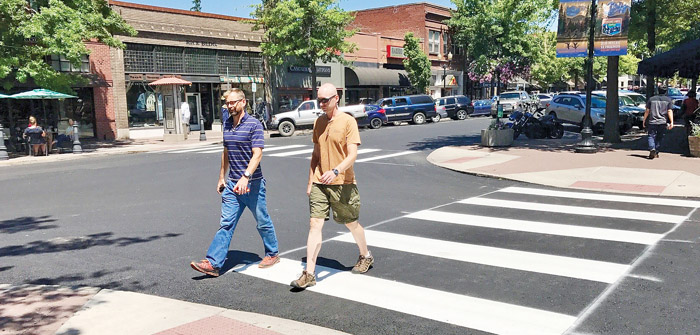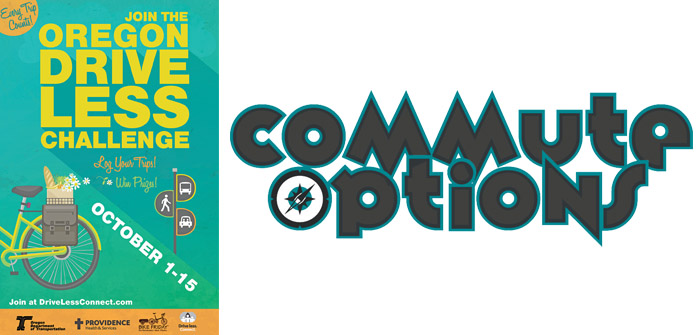People who use public transportation for getting to work, school and other activities know full well the value that they are receiving. In some cases, it would be harder, if not impossible, for riders to retain gainful employment and get to crucial services without this option. But the buck doesn’t stop there. Providing the public with access to transit helps the community at large, improving its economic vibrancy.
Cascades East Transit (CET), managed by the Central Oregon Intergovernmental Council (COIC), is helping working families who rely on public transit every day. “Transit dependent users,” mainly seniors, persons with disabilities, and lower-income individuals and families, make up the majority of riders on CET’s Bend fixed-route system and regional Community Connector Shuttles.
“Households who use public transportation save a significant amount of money,” said Scott Aycock, transportation planner for COIC. For example, a two adult “public transportation household” saves an average $6,251 every year, compared to an equivalent household with two cars and no access to public transportation service. A “public transportation household” is defined as a household located within ¾ mile of public transportation, with two adults and one car.
“In addition, public transit provides essential value for your community even if you never want to use it yourself,” said Aycock, “including reductions in congestion and air pollution, enhanced property values and providing those with limited or no mobility options with access to essential services, school and work. Transit helps these people to be productive, independent members of society.”
Companies or institutions that provide services to people who use public transportation also benefit from this important mobility option. Fully 61 percent of local riders and 57 percent of long-distance riders on CET stated that they would have not made the trip or would have had to get a ride from someone else if they didn’t have access to transit, according to CET on-board rider surveys, conducted April – June, 2012.
Central Oregon businesses and other service providers cannot afford to miss out on this essential customer base. They also cannot afford to limit their labor pool to workers who live only in their community. Outside of Bend, the majority of people in Central Oregon are driving from one town to another for work. In the 2010 census, 2,178 people drove from Redmond to Bend every work day. Another 1,636 people made the reverse trip. An additional 430 people drove from Prineville to Bend and 291 from Prineville to Redmond every work day.
This “inter-community commuting” has a big price tag for commuters, said Aycock. CET’s Community Connector Shuttles offer a more affordable means to many inter-city commuters, creating essential transportation and “pocket values” for those who cannot afford to own and maintain a vehicle, and even those who do.
These “choice riders,” or those who could drive themselves but choose not to, are a customer base that increased funding in transit will help to further attract. With more local funding to match dedicated state and federal funds, Aycock said CET could add more frequency to the transit system over larger parts of the community.
Whether riders are using public transportation by necessity or choice, they receive the direct economic benefits of gas, insurance and maintenance costs. At the same time, the community benefits by reduced road congestion and the need for costly roadway improvements. Companies, downtown districts and other centers accessed by public transportation receive more customers and clients. Colleges and other schools attract more students with added accessibility.
“There is always a reason to support transit whether or not you’re going to use it,” said Aycock. “Anyone interested in supporting transit should contact their local city councilors, county commission or Chamber of Commerce to voice this support and urge them to support it as well.”
For more information on Central Oregon’s public transportation system, visit www.cascadeseasttransit.com. For additional ways to get involved, contact Scott Aycock at scotta@coic.org.
Commute Options promotes choices that reduce the impacts of driving alone. For more information about Commute Options, contact Jeff Monson, Executive Director of Commute Options at 541/330-2647 or visit www.commuteoptions.org.
Annissa Anderson is a freelance writer and PR consultant in Bend.




